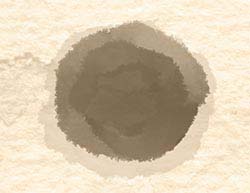Don Ameche died yesterday. He was 85. He was born in my hometown, Kenosha, Wisconsin. When his picture appeared in TIME Magazine in 1985, my picture was on the same page. Ameche was in a bathing suit standing on a diving board, I was in one of the morrow poses, cigarette in hand, in shirt sleeves, impersonating the great broadcaster for an HBO movie. I framed the page, saying that when I grew up I wanted to be just like Don Ameche. I was 45; he was 78.
When I saw him in the movies during the forties, I thought he was loud—all of the time. Too direct. Too late, too nuance. He was oddly handsome. His hair was slick, his moustache neat, and his face unlined and a little too round. He stood erect always. He looked good in a tuxedo, with broad shoulders and his hands at his side. That’s a hard thing to do, for any actor; to just stand there with your hands comfortably at your sides, doing nothing but talking or being still. His voice was deep, resonant, sometimes sounding like an announcer instead of like a regular person just talking. He could shout and talk fast. He could sound poignant, but it seemed to me when I saw him after I grew up, that he was pretending to be poignant. But it was a good pretense. I understood that was his truth. He meant it; that’s how he expressed himself. His way, not mine. I liked him better.
He was a big movie star for about ten years. That seems to be the standard limit, often. I’ve noticed that about many movie stars. They get popular—hot for a year or two. They get handed every great role, seemingly, then they fade away for a bit. Then they come back. It’s the fifth year that we’ve been noticing them. Then an Academy Award nomination comes. The actor doesn’t win. He gets another nomination and is the favorite, but doesn’t win again. Then he’s playing the second role with another hot big star or a great old star. Now it’s eight years. The transition comes. The actor is no longer cute or merely attractive and good; the actor is semi-respected. The actor plays one more good role, receives an Oscar for Best Supporting Actor, and fades once more. People say, “Whatever happened to . . . ? He’s always good, though, I always liked him. ‘Member when he was in _______; he was really great in that.” Someone else says, “He works all the time. I jus’ saw him in a European film, kind of odd but O.K. He was good.” It’s ten years later.
Don Ameche once said to someone on a set, “I don’t know when I lost m name.” Sad. But he wasn’t feeling sorry for himself. . . too much. He kept walking in Santa Monica. I used to see this man striding along. His arms would swing deliberately forward and back, like his acting. He was tall and stood erect, up one street, over to another and across, on a path, a trail, I guessed. I would follow him in my car sometimes, well, maybe twice, just to make sure it was he. He was eating one meal a day, he said, and staying fit. He loved to travel, he said, it kept him interested. He’d had his ten year, but he kept working. He had started in radio. He went back to radio for years. He acted on the stage and on television. He kept walking. For twelve years, he did not make a movie. Someone found him for a film in 1983. He was 75 years old. Three years later, he was in COCOON and they gave him an Oscar. His acceptance speech was an oration. It was clear, studied, and loud. He used repetition. With this award you. . . with this award you. . . with this award you have given me, and I hope I have earned, your respect. Thank you. He was Don Amache to the end. Maybe I can last as long.
